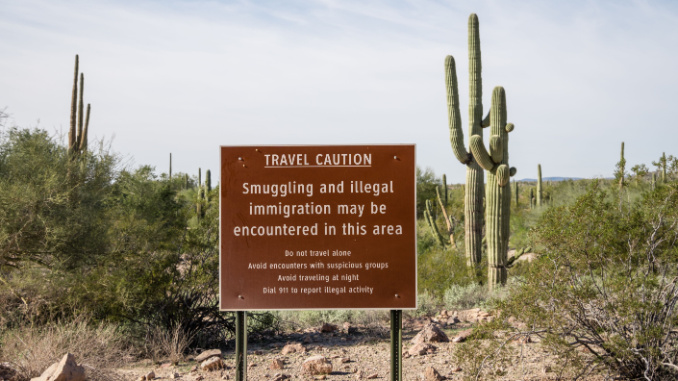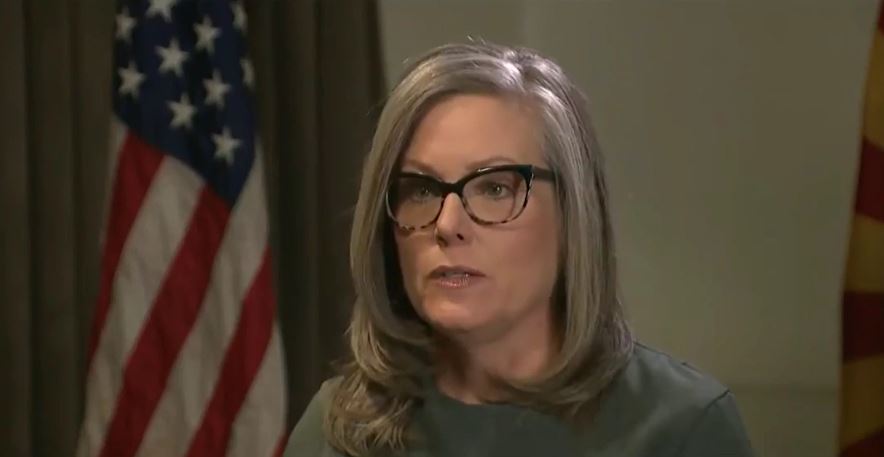
by Jonathan Eberle | May 29, 2025 | News
By Jonathan Eberle |
In an era dominated by global social media platforms, one Arizona-based startup is taking a different approach—focusing not on the world at large, but on the people living right next door.
ConnectNeighbors.com, a new digital platform founded by Air Force veteran and entrepreneur John Backer, has officially launched nationwide, offering free, hyperlocal websites designed to help neighbors connect, communicate, and collaborate. With over 5,000 neighborhood-specific sites already live—spanning all 50 states, 431 cities, and 3,080 counties—the platform has rapidly gained traction, surpassing 2 million page views.
“We built ConnectNeighbors.com to create stronger, better-informed neighborhoods,” said Backer in a statement. “It’s a modern front porch—a place where people can share, connect, and build community pride.”
Unlike traditional social networks, ConnectNeighbors.com emphasizes geographic specificity. Each site is tailored to a particular community, offering resources and updates that matter most to local residents. Features include event calendars, garage sale listings, real estate updates, neighborhood watch alerts, school contact information, and even space for homeowners association (HOA) links and local vendors.
But perhaps the most distinctive aspect of ConnectNeighbors.com is its sponsorship model. Rather than relying on advertising revenue or subscription fees, the platform is sustained by local Realtors who sponsor and manage their respective neighborhood sites. These sponsors serve as community liaisons, curating content and offering insight in what the company calls an “attraction marketing” approach.
“The response has been amazing,” said Backer. “Realtors love the visibility, and residents appreciate the convenience. Most people have told us they’ve never seen anything quite like ConnectNeighbors.com—it’s a win for the whole community.”
The model appears to be resonating. Residents can easily locate their neighborhood page at ConnectNeighbors.com, and if a specific community isn’t yet represented, users can request its creation. For real estate professionals, sponsorship opportunities are available on a first-come, first-served basis—with only one Realtor assigned per site to ensure exclusivity.
As digital platforms continue to evolve, ConnectNeighbors.com is betting that community-focused connectivity—rooted in geography, trust, and local service—will offer something social media giants can’t: genuine neighbor-to-neighbor engagement.
Jonathan Eberle is a reporter for AZ Free News. You can send him news tips using this link.

by Jonathan Eberle | May 27, 2025 | News
By Jonathan Eberle |
Arizona lawmakers have passed new legislation aimed at bolstering support for maternal mental health, particularly for women experiencing postpartum depression. The bill, HB 2332, was signed into law this month and is set to expand education and improve access to care across the state, with a particular focus on rural and underserved communities.
Sponsored by Rep. Julie Willoughby (R-LD13), who also serves as House Majority Whip, the measure directs the Arizona Department of Health Services to create and distribute educational materials on maternal mental health. These resources will be made available to both healthcare providers and patients during pregnancy and the postpartum period.
The new law also establishes a Maternal Health Advisory Committee, tasked with identifying and addressing barriers to care in regions where access to OB-GYN and mental health services is limited. The committee’s findings and recommendations are due by the end of 2026.
“We are standing up for Arizona moms and making sure they’re not left to struggle in silence,” Willoughby said in a statement. “This new law is a win for women, a win for rural Arizona, and a win for every community that values life and health.”
Willoughby, a practicing nurse and mother, has made maternal health a legislative priority. She emphasized that the law is designed to deliver “real help” through clear information and accessible support.
The advisory committee will be composed of a wide range of stakeholders, including OB-GYNs, family physicians, midwives, doulas, and representatives from rural hospitals, tribal health facilities, insurers, and emergency providers.
HB 2332 passed the Arizona Legislature with bipartisan support, aligning with broader efforts in the Republican majority’s policy platform to promote family well-being and rural health access.
Jonathan Eberle is a reporter for AZ Free News. You can send him news tips using this link.

by Jonathan Eberle | May 25, 2025 | News
By Jonathan Eberle |
The U.S. Attorney’s Office for the District of Arizona announced Friday that 310 individuals were charged with immigration-related offenses between May 10 and May 16, as part of a weeklong federal enforcement initiative aimed at combating illegal immigration and associated criminal activity.
According to a press release from the U.S. Attorney’s Office, the charges include 125 cases involving illegal reentry into the United States and 170 cases of illegal entry. An additional 15 individuals were charged with human smuggling offenses, allegedly transporting undocumented immigrants into or within Arizona.
The enforcement actions were supported by a broad coalition of federal agencies, including U.S. Immigration and Customs Enforcement’s Enforcement and Removal Operations (ICE ERO), ICE Homeland Security Investigations (HSI), U.S. Border Patrol, the Drug Enforcement Administration (DEA), the Federal Bureau of Investigation (FBI), the U.S. Marshals Service (USMS), and the Bureau of Alcohol, Tobacco, Firearms and Explosives (ATF).
All charges were filed via criminal complaint. As noted in the release, a criminal complaint is a formal accusation and does not imply guilt; individuals charged are presumed innocent until proven guilty in court.
The cases fall under Operation Take Back America, a Department of Justice initiative described as targeting illegal immigration, cartel activity, and transnational crime. The operation coordinates federal resources, including those from the Department’s Organized Crime Drug Enforcement Task Forces (OCDETFs) and Project Safe Neighborhoods (PSN).
Officials have characterized the initiative as part of a broader strategy to “repel the invasion of illegal immigration” and dismantle transnational criminal organizations. The U.S. Attorney’s Office did not indicate how many of those charged remain in custody or when initial court appearances are scheduled. Further proceedings will be held in the U.S. District Court for the District of Arizona.
Jonathan Eberle is a reporter for AZ Free News. You can send him news tips using this link.

by Jonathan Eberle | May 24, 2025 | News
By Jonathan Eberle |
On Thursday, Arizona State Representative Alexander Kolodin (R-LD3) accused Governor Katie Hobbs and Attorney General Kris Mayes of improperly delegating state powers to a Washington, D.C.-based advocacy organization. The accusation raises concerns about transparency and potential conflicts of interest in the administration of state business.
According to documents Kolodin says he obtained through a months-long investigation, both Hobbs and Mayes engaged in undisclosed agreements with the States United Democracy Center, a nonprofit organization focused on protecting elections and democratic norms. Kolodin alleged that the group holds connections to progressive donors and political agendas.
The materials released by Kolodin indicate that Hobbs, during her tenure as Secretary of State, contracted with States United on three separate occasions to provide assistance in managing her office. One such arrangement was reportedly renewed shortly after Hobbs assumed the governorship. Kolodin contends that while these services were presented as being provided at no cost to the state, States United simultaneously received permission to advocate in regulatory and legal proceedings against Arizona’s interests—even while advising top state officials.
The report also includes allegations that the group was allowed to delete public records, potentially in violation of state law. Kolodin claims that the organization’s acknowledgment of this risk was disregarded by AG Mayes, who publicly denied any wrongdoing. The Attorney General’s office, according to Kolodin, has yet to release additional documents tied to its interactions with States United.
“Governor Hobbs and Attorney General Mayes have betrayed Arizonans by allowing radical, dark-money activists to infiltrate and weaponize Arizona’s government,” said Kolodin in a statement. “This corrupt collusion must be exposed. The people deserve answers, transparency, and immediate accountability.”
The allegations are likely to intensify tensions in the state, where debates over election integrity and government transparency have remained prominent in recent years. Representative Kolodin, a Republican, serves in the Arizona House of Representatives and has been a vocal critic of Governor Hobbs’ agenda.
Jonathan Eberle is a reporter for AZ Free News. You can send him news tips using this link.

by Jonathan Eberle | May 23, 2025 | News
By Jonathan Eberle |
Arizona Governor Katie Hobbs has vetoed legislation that would have allowed residents in voter-established Active Management Areas (AMAs), including the newly created Douglas AMA, to revisit their groundwater management designation after ten years.
The bill, HB 2089, was sponsored by Representative Gail Griffin (R–LD19), who argued that the measure was about preserving local control and ensuring that rural communities retain a voice in long-term water policy decisions.
“This bill simply would have allowed voters to revisit a decision they made ten years earlier. It respected the voice of the people — not silenced it,” Griffin said in a statement responding to the veto. “The Governor’s action undermines the ability of rural communities to self-govern and respond to future conditions.”
Under current Arizona law, AMAs are designated areas where groundwater is heavily regulated in an effort to manage overdraft and promote sustainable use. The Douglas AMA was approved by voters in 2022 in response to growing concerns over aquifer depletion in southeastern Arizona. The law established that AMA did not include an option for voters to re-evaluate the decision in the future — a gap HB 2089 sought to address.
Rep. Griffin and other rural lawmakers have expressed concern over what they describe as heavy-handed regulation from Phoenix that may not reflect the economic realities of agricultural communities. In a press release, the Arizona House Republican Caucus also criticized the Governor’s broader approach to groundwater management, particularly in the Willcox Basin, where the administration is reportedly pursuing a 50% reduction in groundwater overdraft by 2075.
The veto is the latest flashpoint in an ongoing debate between state leadership and rural lawmakers over how best to balance groundwater conservation with agricultural and economic needs. It remains unclear whether supporters of the measure will seek to reintroduce similar legislation in future sessions.
Jonathan Eberle is a reporter for AZ Free News. You can send him news tips using this link.





